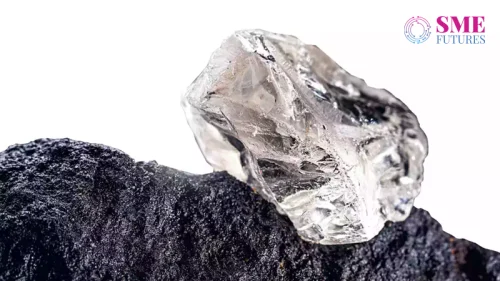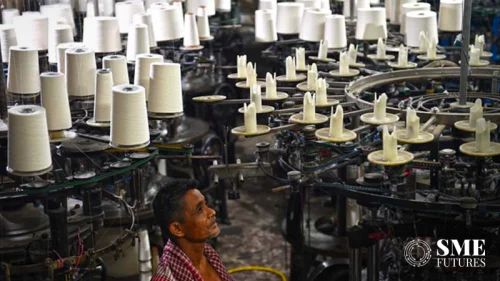Chai and Chaiwallahs are famous in India.
And that makes us a tea drinking nation. For many years, tea drinking in India has been a custom and a tradition in almost every Indian household. Many a times and in many places Indian mornings are synonymous with steaming cups of tea.
Due to its ubiquitous presence in every nook and corner of our country, tea drinking in India has evolved in many ways, resulting in the existence of a very significant tea industry here. Nearly 900,000 tonnes of tea is produced here or 30 per cent of the world’s tea output which makes us the second largest producer of tea after China.
This global favourite raw beverage mostly comes from swathes of tea estates in Darjeeling in West Bengal, Assam and several other areas. According to a market research done by EMR, “The tea market in India is being driven by the healthy production and consumption of the beverage. In 2020, nearly 1.10 million tonnes of tea was consumed in the country.”
The report further forecasts, that the Indian tea market is projected to witness further growth in the forecast period of 2021-2026, growing at a CAGR of 4.2 per cent. While, in 2026, the tea industry is expected to attain 1.40 million tonnes.
In recent years, the quintessential chai has been undergoing drastic makeovers in terms of flavours, blends, etc. Also, the rise in urbanization and the rising prominence of café culture has led to a diverse growth in the portfolio of tea flavours. For instance, green tea and bubble tea have become a thing now.
Meanwhile, 2020 was not good for tea producers, despite the fact that the pandemic outbreak led to a boost in the health and wellness scene in India where people were being exhorted to adopt tea concoctions in their routines as a healthy measure to boost their immunity.
Unsurprisingly, tea is still the most valued beverage in the retail market and is expected to grow steadily.
This in turn has engendered a tough competition in the market among the various tea players who are coming up with newer and quirkier combinations, such as organic blends and various other unusual flavours. One such domestic specialty tea company is Karma Kettle, run by co-founders Dhiraj Arora and Priti Arora. The company has been focusing on organic blends in its chai range and collaborates with local tea growers on the ground. Dhiraj Arora, Co-Founder, Blending & Production says, “Given how 2020 further emphasized a need for self-care, Karma Kettle is keen to continue focusing on wellness this year, with our range of 40+ wellness and detox teas.”

In a discussion with SME Futures, Arora highlights the company’s plans and throws some light on the Indian tea industry.
Edited Excerpts:
Tell us about your brand Karma Kettle. When you say speciality tea company, what does it mean?
Karma Kettle takes pride in being India’s finest artisanal tea blenders, producing small batch teas to ensure freshness and flavour in every cup. Each blend is curated by our certified tea sommeliers, handcrafted by our in-house master blenders, and gathered together in delightful boxes for our patrons.
Each tea contains within it the richness of different cultures and the scents of lands filled with beauty and adventure, lending you the freedom to travel to distant places while sipping a cup of a hot or cold brew.
Our intention is to serve up teas that soar with your imagination. We promise you a relaxed and tranquil time with a cup of karma in your hands.
We define ourselves as a specialty tea company because we do not sell teas in the traditional format that is orthodox and CTC teas. We specialize in blended varietals of teas using orthodox teas and specialize in caffeine-free teas or tisanes and cold brew infusions. The teas are blended with different herbs, spices and botanicals to create flavourful infusions.
How has the brand grown and changed since its inception? Throw some light on the process of launching various tea products in the market? What has been the strongest point so far?
We started off in 2016 with a range of 10 teas that has increased to 100+ teas in 2021. Our packaging format has also undergone a transformation, starting off with loose leaf varietals in tin boxes to offering pyramid tea bags, double chambered tea bags, tea accessories and tea gifting to consumers today.
When we began, our point of sale was our flagship store and cafe in Kolkata as well as our e-commerce portal, www.karmakettle.com. Today, we are available in all leading e-commerce platforms (Amazon, Big Basket, Flipkart, Tata Cliq Luxury, etc.). Our teas are also available in niche and gourmet retail stores across the country.
The strongest point so far has been the overwhelming response to our iced teas and wellness teas collections, which has always been our focus.
Karma Kettle is planning to embrace sustainability. Tell us more about it. What are your plans and the various initiatives that you have undertaken?
In 2020, we made a commitment to the environment to move towards sustainability in our product offerings and packaging. The first step involved embracing the organic cause. The entire process of organic certification is extremely meticulous and involves maintaining the highest standards of organic ingredient sourcing.
As of 2021, 18 of our bestselling teas are ‘Certified Organic’ by NOP India/ Ecocert France/ USDA Organic; we plan to expand this organic offering to include 40 per cent of our tea range by 2022.
Another important initiative is to transition to biodegradable pyramid tea bags. An important step is to eliminate the use of plastic for packaging the tea cartons and incorporate 100 per cent compostable solutions.
Last but not least, in a bid to create sustainable packaging, we engage rural artisans from Kadam India for that purpose.
Throw some light on how Karma Kettle engages with and partner’s small tea businesses or farms? What is the gain here?
Karma Kettle has been working closely with independent and small-scale tea farmers and growers to source our teas. This essentially cuts off the middlemen and allows us to give the owners a fair price for their tea directly. It also gives us a personal connection with the planters and an insight into the functioning and operation of a challenging industry that is being deeply affected by climate change.
An interesting development early this year led us to sourcing some fantastic teas from the North East regions such as Meghalaya, Manipur, Arunachal Pradesh and Sikkim. The entire process of tea manufacturing in these states takes place without any machinery, so essentially that is hand rolled tea! Our entire marketing efforts will aim to educate Indian consumers about the lesser-known teas being produced in these regions. We aim to launch these teas in July 2021.
With organic consumerism on the increase, the market is becoming competitive. What are the challenges for tea FMCG brands? What you have been observing?
While the market is competitive and there are new entrants coming in every month, it’s important to stay ahead of the curve in terms of product innovation. To consistently develop new blends is our USP. Karma Kettle is known for launching teas that reflect upcoming consumer trends and staying ahead of the competition.
Secondly, both of us (Dhiraj Arora and Priti Sen Arora) come from a hospitality background and have a responsive creative team, which definitely lends us the advantage of understanding consumer tastes and the latest trends in beverage consumption and food palates.

In my understanding, the Indian tea industry was also caught up in the pandemic like everything else. What is your perspective on the current scenario, what is going on?
Yes, the Indian tea industry was hit by two factors in 2020, which led to a rise in prices of the tea crop—the first being unfavourable climatic conditions and the second was COVID-19, which led to difficulties in managing the tea estates. For regions such as Darjeeling, where we have seasonal flushes that are dependent on laborious steps involved in the processing, the pandemic led to two flushes being destroyed. There was also loss of exports.
Smaller tea companies have had to buy teas at higher prices but are unable to pass on the additional cost to consumers as they too have been affected by the pandemic.
The B2B and HORECA markets have also suffered. It’s only been a couple of months since leisure tourism has begun seeing an uptick and hotels have started to order (teas) again. The biggest gainer has been e-commerce for all the gourmet food companies as customers have been able to order gourmet food from several online platforms and create food and beverage experiences at home.
Organic products are the new normal. How has the consumer perspective changed? What are the key trends that you have observed and what are the predictions for the future?
Yes, we are seeing a rising preference towards organic food and beverages. For us, the idea is to make every day essential teas organic and natural and not only focus on the fancy occasional teas.
Some of the popular trends in tea have been linked to immunity boosting varietals such as kadha blends or the use of herbs such as turmeric and giloy. Having said that, we believe there is a market for both organic and non-organic teas to co-exist and flourish.
We must understand that changing production to the organic mode is a long-term process and involves years of organic cultivation. The revolution has begun but this needs an overall inclination from our side to pay more to incentivize and motivate tea producers to switch over to organic cultivation. Green tea and blends involving green teas have become very popular as there is rising evidence of the link between consuming green tea and good health. We are predicting that organic and green teas will be the new normal.
Do you think that due to bigger brands, other homegrown brands are undergoing an identity crisis (difficulties in doing business)? How are brands including your own dealing with this issue?
Yes, larger brands are also trying to change their marketing strategies by creating the finished product and reaching out directly to consumers. They are also becoming very active on social media channels and building relationships with younger audiences by focusing on packaging and innovative marketing. However, economies of scale do deter them from being as innovative as the smaller homegrown brands can be. Also, I think an advantage that brands such as Karma Kettle have is that we do not grow our own teas; we are artisanal tea blenders. This allows us to try out teas from various regions and producers.
Indians are mostly chai lovers, but the increasing café culture and urbanization are changing people’s lifestyles. How has this affected millennials and their tea drinking habits? Will chai stay for long?
Chai is part of our bloodstream and will always be the preferred drink of choice. However, people are changing their tea making preferences, for example they are opting for vegan milk options, low or no sugar and consuming healthier tea blends with herbs or caffeine options such as rooibos. This has led us to innovate with our teas to reach out to the millennials and Gen Z consumers and today we have rooibos chai, chilli chai, ayurvedic chai and green chai. We have also been using organic CTC and spices for these. Tea serving is also going to undergo some changes – iced tea, cold brew tea, deconstructed tea and nitro teas will be some of the new trends.
What is the next big step for Karma Kettle? What is your roadmap for the future?
It is a very exciting time for Karma Kettle – we are targeting offline ‘experience retail’ in leisure destinations such as Goa and Pondicherry. We are making a foray into Cascara blends, tea cocktail ranges and instant teas. Karma Kettle is working with leading food and beverage developers to come up with exciting food and beverage recipes for people to try. Karma Kettle has also made inroads overseas as we send our teas to Singapore, Mauritius, Brazil and Australia. Finally, tea education is on the cards and we want to cater to tea enthusiasts as well as aficionados about our tea varietals. It promises to be an exciting year!











